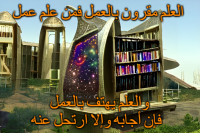Dr Wildcat
Related
Haskell Indian Nations University & Knowledge commons
Haskell
Dr.Wildcat is a professor at Haskell Indian Nations University
Red Alert
Indigenous Realism
In Red Alert, Dr Wildcat defines Indigenous Realism on the basis that:
Our human knowledge of reality must always be approached with humility. In North America many indigenous traditions tell us that reality is more than just facts and figures collected so that humankind might wisely use resources. Rather, to know "it" - reality - requires respect for the relationships and relatives that constitute the complex web of life. I call this indigenous realism and it entails that we, members of humankind, accept our inalienable responsibilities as members of the planet's complex life system, as well as our inalienable rights.
Consequently, to overcome the ecological amnesia resulting from the media culture/attention economy separating its subjects from the natural environment, the conclusions of experimental climate science must be combined with the "deep spatial experiential body of knowledge" which derives from "paying attention to the life surrounding us."
Seeing that knowledge resides in life, the commons approach to knowledge construction as as a social or collective enterprise is extended "to a cooperative activity involving the other-than-human life that surrounds us" including what Pacha Mama (Mother Earth) herself is telling us.
This knowledge pertains to the ecological catastrophe, i.e. the "dramatic change that threatens tribal lifeways and those of most humans on the planet," and "how we might adopt life-enhancing cultures situated in a symbiotic relationship with nature." Wildcat posits that the mother tongue of Earth through which her message is delivered is best understood through many dialects known by Indigenous peoples:
Indigenous peoples have paid attention to our Mother Earth, it is important to listen to what we can share with humankind. These knowledges are bound in unique lifeways - customs, habits, behaviors, material and symbolic features of culture emergent from the land and sea - and therefore have practical implications for those of humankind wanting to cooperatively and sustainably live with a place as opposed to at an address.[1]
Knowledge-In-Practice

A major challenge facing the climate movement is the knowledge-action gap. It would be a mistake to separate from knowledge commons practical knowledge, especially knowledge embodied in practice. Taken together, such collective action, or mass climate action, is the practical realization of climate knowledge commons relative to their essential purpose.
In Red Alert, Dr Wildcat describes how Indigenous ingenuity or indigenuity addresses this dilemma:
The ability to solve pressing life issues facing humankind now by situating our solutions in Earth-based local Indigenous deep spatial knowledges of tribal peoples - constitutes a practical merger of knowing with doing. Their lifeways embody knowing as doing... an ability to work with what they have available and the wisdom to ensure, such as they can, that they can continue doing it.
Conversely, what "Western" society lacks but so desperately needs is "practical knowledge about living well brought about by a lifetime of attentiveness to something other than our own human-produced culture."[2]
Ultimately, this approach aligns with adopting the most advanced complexity models of experimental science concerning the current situation of global burning or climate collapse:
By doing so, we might move away from thinking about a single solution for the problem we face and toward thinking about our participating in an emerging world where we do not wring our hands and fail to act, but act even in little ways, in personal choices, to contribute to emerging systems - in other words, societal properties - that might slow the accelerating decline in the diversity of life we are now witnessing.[3]